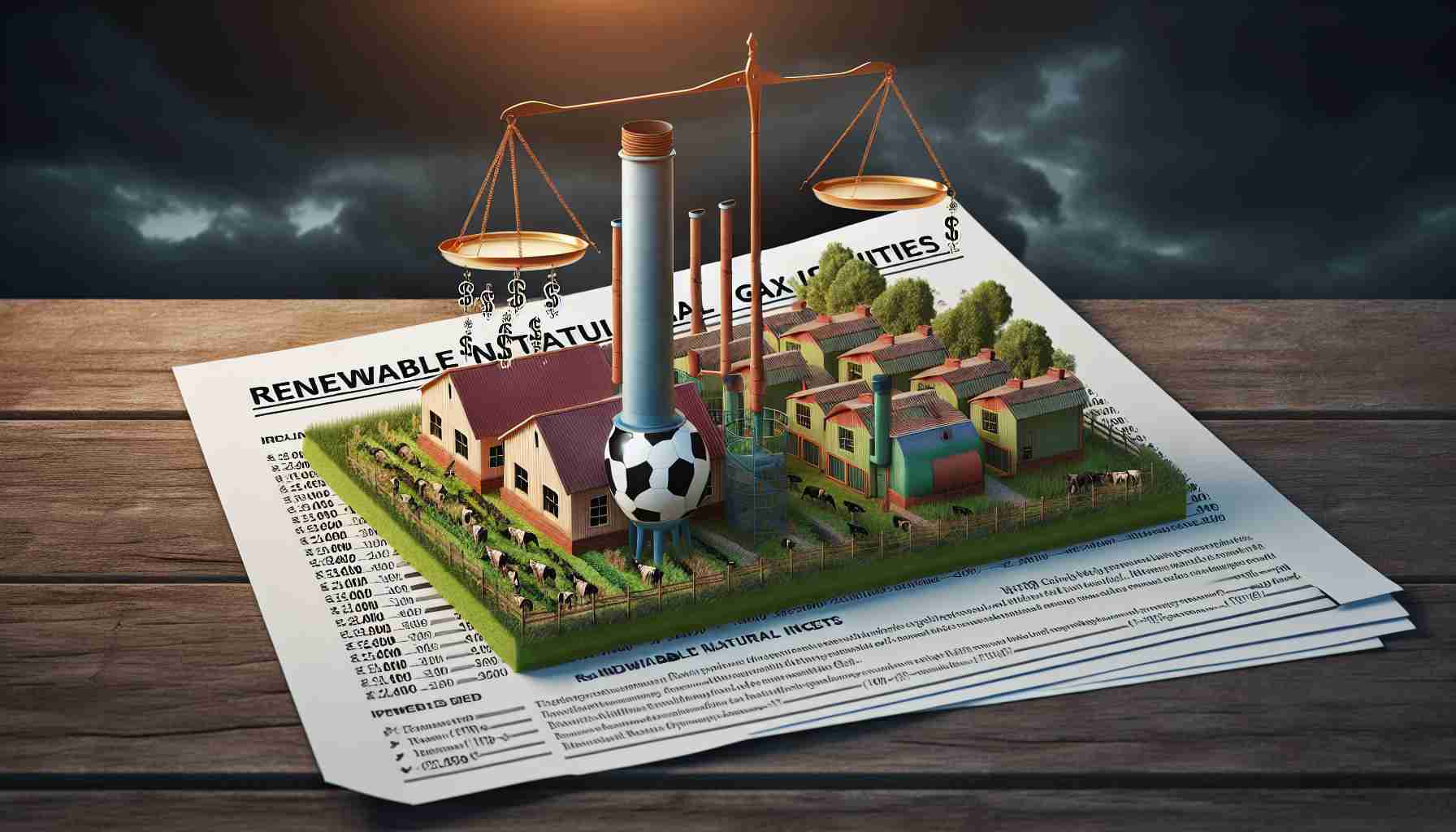Understanding the Shifts in Renewable Natural Gas Policy
The renewable natural gas (RNG) sector is currently advocating for modifications to a recent tax credit designed primarily for clean hydrogen production. Experts suggest that the newly established 45V tax credit does not effectively support biomethane production tied to hydrogen, raising urgent concerns about accounting practices and carbon intensity calculations.
Industry representatives express that a potential change in administration may open avenues for revisiting these rules. There are worries about the delay in implementing crucial accounting practices known as book and claim, as well as the challenges in aggregating carbon intensity scores from various feedstocks, which may hinder the industry’s potential.
Heather Dziedzic, a notable figure in the American Biogas Council, outlined the implications of how the Treasury determines the carbon intensity score for manure, which may undervalue the contributions of dairy digesters significantly. In states like California, dairy biogas receives a more favorable assessment, incentivizing the expansion of digesters produced from cow waste.
However, critics like Julie McNamara voice concerns that policies intended to encourage clean hydrogen production should not inadvertently subsidize problematic methane production in farming operations. The call for rigorous regulations is underscored by fears of creating perverse incentives that could amplify methane emissions rather than reduce them.
In a landscape of changing regulations, the path forward for renewable natural gas and its producers remains complex and uncertain.
The Future of Renewable Natural Gas: Key Insights and Trends
Understanding the Shifts in Renewable Natural Gas Policy
The renewable natural gas (RNG) sector is currently at a pivotal point, actively pushing for adjustments to existing tax incentives that primarily cater to hydrogen production. The introduction of the 45V tax credit has sparked discussions about its adequacy in supporting biomethane production linked to hydrogen. As stakeholders express concerns regarding carbon intensity calculations and accounting methods, a clearer understanding of the implications is crucial for the industry’s future.
Pros and Cons of the 45V Tax Credit
Pros:
– Encouragement of Clean Energy: The tax credit aims to promote the production of clean hydrogen, which is crucial for transitioning to a low-carbon economy.
– Potential for Investment: By incentivizing hydrogen production, it may attract significant investments into the clean energy sector.
Cons:
– Limited Support for Biomethane: Critics argue that the tax credit does not adequately incentivize biomethane production, essential for achieving comprehensive sustainability in the RNG sector.
– Complexity in Implementation: The delay in the implementation of key accounting practices, such as book and claim, could lead to inconsistent carbon intensity assessments, complicating financial forecasting and investment decisions.
Market Analysis and Trends
The renewable natural gas market is anticipated to grow significantly, driven by increasing demand for cleaner energy sources and regulatory support. However, the sector faces challenges related to regulatory frameworks and the need for clear guidelines on carbon accounting. Market experts predict that as awareness of methane emissions rises, there will be a stronger push for lifetime-focused environmental policies, potentially reshaping RNG’s role in the energy landscape.
Use Cases and Innovations
1. Dairy Digesters: In states like California, dairy digesters exemplify how RNG can be produced from agricultural waste. These systems are increasingly recognized for their potential to reduce methane emissions while generating renewable energy.
2. Municipal Projects: Cities are exploring RNG as a viable waste-to-energy solution, showcasing innovative approaches to waste management and energy production.
Security Aspects
As the RNG sector grows, so does the need for robust security measures to prevent fraud and ensure the integrity of carbon credits. Industry leaders are advocating for transparency in the carbon credit trading system to maintain trust among stakeholders and regulators.
Sustainability and Environmental Concerns
While RNG has the potential to contribute significantly to renewable energy goals, environmental advocates caution against policies that might inadvertently encourage increased methane emissions from traditional farming practices. To ensure fairness and sustainability, rigorous regulations must be implemented to prevent negative externalities associated with RNG production.
Predictions for the Future
Looking ahead, industry analysts predict that the RNG sector will undergo significant transformations in response to changing political landscapes and increased scrutiny over carbon emissions. A potential shift in administration could lead to revised policies that better align the interests of hydrogen production with those of biogas producers.
For more insights about renewable energy policies and developments, visit American Biogas Council.














